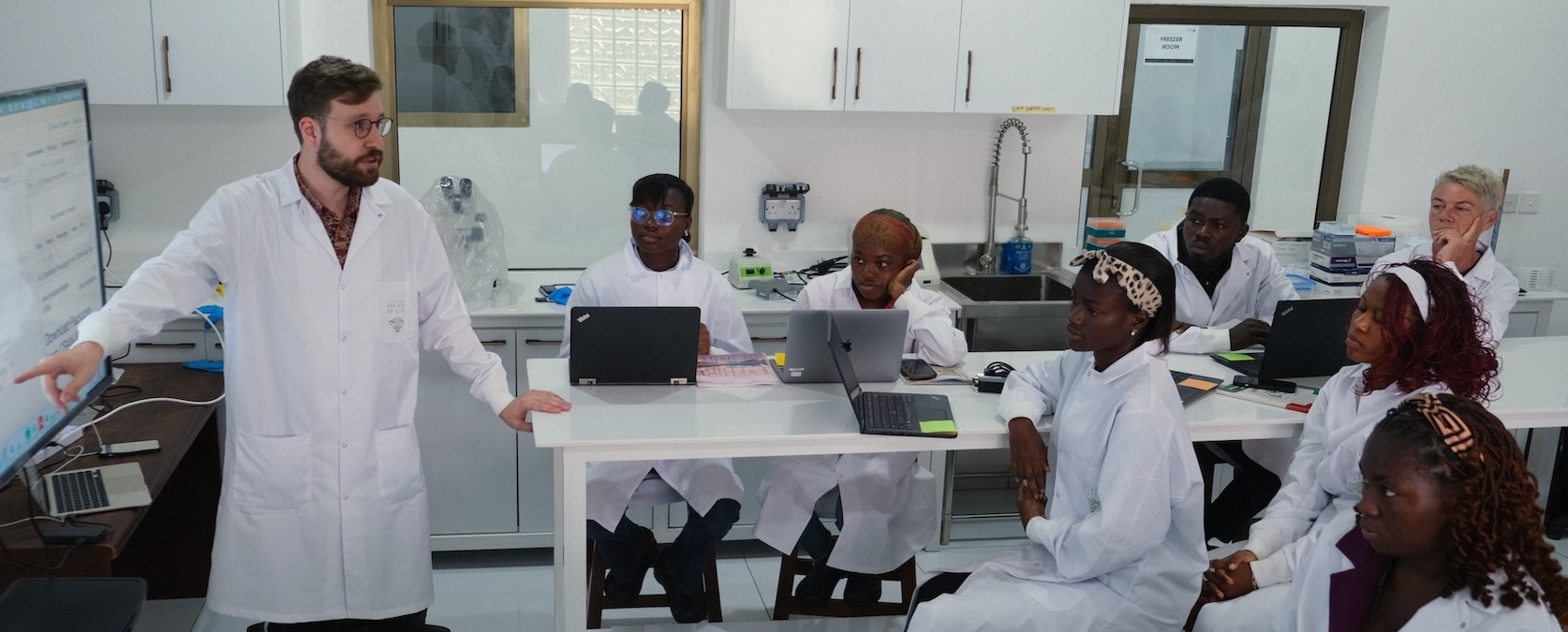Top Stories
Experts Launch Urgent DNA Training in Peru and Ghana for Biodiversity

UPDATE: Experts from the University of Guelph’s Centre for Biodiversity Genomics (CBG) are currently conducting urgent training sessions in Peru and Ghana to empower a new generation of scientists with cutting-edge DNA barcoding technology. This initiative aims to strengthen global biodiversity research and is crucial for identifying and documenting the planet’s millions of species.
This summer, CBG members were invited to collaborate with graduate students and local delegates, guiding them through a comprehensive DNA barcoding workflow. The training spans from field collection to DNA extraction, polymerase chain reaction (PCR), sequencing, and final data analysis. The initiative responds to the urgent need for scientific capacity building in the Global South, as emphasized by CBG founder Dr. Paul Hebert.
“As much of the world’s biodiversity lies in the Global South, it is critical that we build scientific capacity in these nations,” Hebert stated. This project is part of the International Barcode of Life consortium (iBOL), which collaborates with over 40 countries to complete the inventory of life through DNA analysis.
At the University of Ghana, Dr. Ken Thompson and Dr. Spencer Monckton led a workshop attended by 35 participants, including students, researchers, and government officials from Côte d’Ivoire, Ghana, and Guinea. Monckton highlighted the disparity in access to molecular biology tools across Africa, stating, “The reality across much of Africa is that molecular biology is far less accessible than we’re used to in the West.”
Through hands-on training, participants gained essential skills in DNA barcoding, a technology that makes species identification faster and more accurate. The workshops included lectures and lab training, fostering a dynamic learning environment.
“This education is a ‘life-changing opportunity’,” remarked Thompson. The CBG team has also been developing ONTOLOGY, an integrated suite of software and chemware that participants utilized during the training.
The enthusiasm among participants was palpable, with many requesting additional assignments and working late into the night to master the new techniques. “When you introduce people to new tools, they can’t wait to put them to work in all kinds of creative ways,” Monckton added, emphasizing the immediate impact of their efforts.
The program yielded significant results, with participants analyzing local specimens from Peru and West Africa. Each student completed a project and presented their findings, showcasing the knowledge acquired during the intensive training.
Before concluding their sessions, Thompson and Monckton offered ongoing support to participants, who have already reached out for assistance with their analyses. The CBG team is also maintaining connections with their Peruvian counterparts, who will be visiting Guelph for further collaboration.
“There is so much interest in what we do at CBG,” Thompson said. “It is extremely rewarding. Education truly is a life-changing opportunity for people.”
As this innovative training program unfolds, it not only equips scientists in developing regions with vital skills but also fosters a global community dedicated to protecting our planet’s biodiversity. Stay tuned for more updates on this groundbreaking initiative.
-

 Politics4 weeks ago
Politics4 weeks agoSecwepemc First Nation Seeks Aboriginal Title Over Kamloops Area
-

 World5 months ago
World5 months agoScientists Unearth Ancient Antarctic Ice to Unlock Climate Secrets
-

 Entertainment5 months ago
Entertainment5 months agoTrump and McCormick to Announce $70 Billion Energy Investments
-

 Science5 months ago
Science5 months agoFour Astronauts Return to Earth After International Space Station Mission
-

 Lifestyle5 months ago
Lifestyle5 months agoTransLink Launches Food Truck Program to Boost Revenue in Vancouver
-

 Technology3 months ago
Technology3 months agoApple Notes Enhances Functionality with Markdown Support in macOS 26
-

 Lifestyle3 months ago
Lifestyle3 months agoManitoba’s Burger Champion Shines Again Amid Dining Innovations
-

 Top Stories2 months ago
Top Stories2 months agoUrgent Update: Fatal Crash on Highway 99 Claims Life of Pitt Meadows Man
-

 Politics4 months ago
Politics4 months agoUkrainian Tennis Star Elina Svitolina Faces Death Threats Online
-

 Sports5 months ago
Sports5 months agoSearch Underway for Missing Hunter Amid Hokkaido Bear Emergency
-

 Politics5 months ago
Politics5 months agoCarney Engages First Nations Leaders at Development Law Summit
-

 Technology5 months ago
Technology5 months agoFrosthaven Launches Early Access on July 31, 2025




















